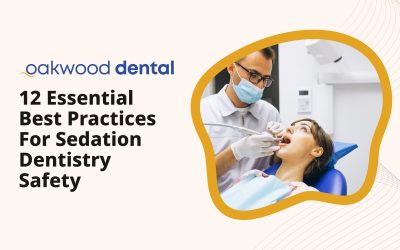Dental veneers are a popular way to improve your smile. There are different types of veneers, including traditional and no-prep veneers. Let’s compare them to help you understand which might be best for you.
Key Takeaways
| Aspect | Traditional Veneers | No-Prep Veneers |
|---|---|---|
| Enamel Removal | Significant | Little to none |
| Lifespan | 10-15+ years | 5-7+ years |
| Reversibility | Not reversible | Often reversible |
| Aesthetic Change | Significant changes possible | Best for subtle changes |
What Are Dental Veneers?
Dental veneers are thin shells that cover the front of your teeth. They can fix issues like discoloration, chips, or gaps. Veneers can give you a brighter, more even smile. These custom-made shells are designed to blend seamlessly with your natural teeth, providing a durable and aesthetically pleasing solution for various dental concerns.
Traditional Veneers: The Classic Choice
Traditional veneers have been around for a long time and have a proven track record of success. Here’s what you need to know about them:
- They require removing a small amount of your tooth enamel, typically about 0.5mm to 0.7mm
- They can make big changes to your smile, including significant color changes and shape modifications
- They usually last 10-15 years or more with proper care and maintenance
- Once you get them, you can’t go back to your natural teeth due to the enamel removal
- They are highly customizable and can address a wide range of cosmetic issues
Porcelain veneers are a type of traditional veneer that many people choose. They look very natural and resist stains well. The porcelain material closely mimics the light-reflecting properties of natural tooth enamel, providing a lifelike appearance.
No-Prep Veneers: The New Kid on the Block
No-prep veneers, including Z-press veneers, are a newer option that has gained popularity in recent years. Here’s what makes them different:
- They need little to no removal of your tooth enamel, preserving more of your natural tooth structure
- They’re great for small changes to your smile, such as minor color corrections or slight shape adjustments
- They usually last 5-7 years, but can last longer with good care and proper maintenance
- In most cases, you can remove them if you change your mind, making them a more reversible option
- They are typically thinner than traditional veneers, usually about 0.3mm to 0.5mm thick
No-prep veneers are a good choice if you want to keep more of your natural tooth structure and prefer a less invasive procedure.
Comparing Traditional and No-Prep Veneers
| Feature | Traditional Veneers | No-Prep Veneers |
|---|---|---|
| Enamel Removal | Significant removal required | Little to no removal needed |
| Lifespan | 10-15 years or more | 5-7 years (can last longer with good care) |
| Reversibility | Not reversible | Can be removed in most cases |
| Suitability for Changes | Good for significant changes | Best for small changes |
| Number of Dental Visits | 2-3 visits | Fewer visits |
| Stain Resistance | Resist stains well | Data not provided |
The Process
Getting traditional veneers usually takes two or three visits to the dentist. First, the dentist prepares your teeth by removing some enamel. Then, they take impressions and send them to a lab. When your veneers are ready, you go back to have them put on. The process typically involves:
- Initial consultation and treatment planning
- Tooth preparation and enamel removal
- Taking impressions of your prepared teeth
- Placement of temporary veneers
- Final fitting and bonding of the permanent veneers
No-prep veneers, like Z-press veneers, often need fewer visits. The dentist might not need to remove any enamel. They take impressions and put the veneers on when they’re ready. The process is generally quicker and may include:
- Consultation and treatment planning
- Taking impressions of your teeth (without preparation)
- Final fitting and bonding of the veneers
The Look
Both types of veneers can give you a great smile. Traditional veneers can make bigger changes, while no-prep veneers are better for smaller fixes. The final appearance depends on factors such as:
- The color and shade of the veneers
- The shape and size of the veneers
- How well they blend with your natural teeth
- The skill of the dentist in designing and placing the veneers
How Long They Last
Traditional veneers usually last longer than no-prep veneers. But with good care, both types can last for many years. Factors that affect the longevity of veneers include:
- Oral hygiene habits
- Diet and lifestyle choices
- Teeth grinding or clenching
- Regular dental check-ups and professional cleanings
Who Should Get No-Prep Veneers?
No-prep veneers might be right for you if:
- Your teeth are mostly straight and even
- You want to make small changes to your smile
- You want to keep as much of your natural tooth as possible
- You have mild discoloration or small chips
- You prefer a less invasive procedure
Talk to a cosmetic dentist to see if no-prep veneers are a good choice for you. They can assess your specific situation and recommend the best option for your needs.
The No-Prep Veneer Process at Oakwood Dental
If you choose no-prep veneers at Oakwood Dental, here’s what you can expect:
- First, you’ll have a consultation to discuss your goals and expectations
- We’ll take impressions of your teeth and possibly some photographs
- We’ll make your custom veneers based on these impressions
- When they’re ready, we’ll bond them to your teeth using a special dental adhesive
- We’ll check to make sure everything looks and feels right, making any necessary adjustments
- We’ll provide you with care instructions to ensure the longevity of your new veneers
Caring for Your Veneers
Whether you choose traditional or no-prep veneers, taking good care of them is important. Here are some tips:
- Brush twice a day and floss daily to maintain good oral hygiene
- Don’t chew on hard things like ice or pens to avoid chipping or cracking the veneers
- Visit your dentist regularly for check-ups and professional cleanings
- If you grind your teeth, ask about a nightguard to protect your veneers
- Use a non-abrasive toothpaste to avoid scratching the veneer surface
- Limit staining foods and beverages, or rinse your mouth after consuming them
Good general dentistry habits will help your veneers last longer and maintain their appearance.
Other Options to Consider
Veneers aren’t the only way to improve your smile. You might also want to think about:
- Teeth whitening for a brighter smile without altering tooth structure
- Braces or clear aligners for straighter teeth and improved bite alignment
- Dental bonding for small fixes and minor cosmetic improvements
- Dental crowns for more extensive tooth restoration
- Enamel microabrasion for removing surface stains and discoloration
Your dentist can help you decide which option is best for you based on your specific dental needs and cosmetic goals.
Tooth Preparation
Traditional: Requires enamel removal
No-prep: Minimal to no enamel removal
Durability
Traditional: Typically last 10-15 years
No-prep: May have shorter lifespan
Reversibility
Traditional: Not reversible
No-prep: More easily reversible
Aesthetic Change
Traditional: Significant changes possible
No-prep: Subtle to moderate changes
Making Your Decision
Choosing between traditional and no-prep veneers is a big decision. Here are some things to think about:
- How much do you want to change your smile?
- How long do you want your veneers to last?
- How much of your natural tooth do you want to keep?
- What does your dentist recommend?
- What is your budget?
- Are you comfortable with an irreversible procedure?
Remember, every smile is unique. What works for someone else might not be the best choice for you. It’s important to have a thorough discussion with your dentist about your specific needs and expectations.
Ready to Improve Your Smile?
If you’re thinking about veneers, the next step is to talk to a dentist. At Oakwood Dental, we’re here to help you make the best choice for your smile. Our experienced team can provide personalized advice based on your unique dental situation and cosmetic goals.
Whether you choose traditional veneers, no-prep veneers, or another option, we’re here to guide you every step of the way. We’ll ensure you understand the pros and cons of each option and help you make an informed decision. Contact us today to schedule a consultation and start your journey to a brighter, more confident smile!

 718-979-2121
718-979-2121









